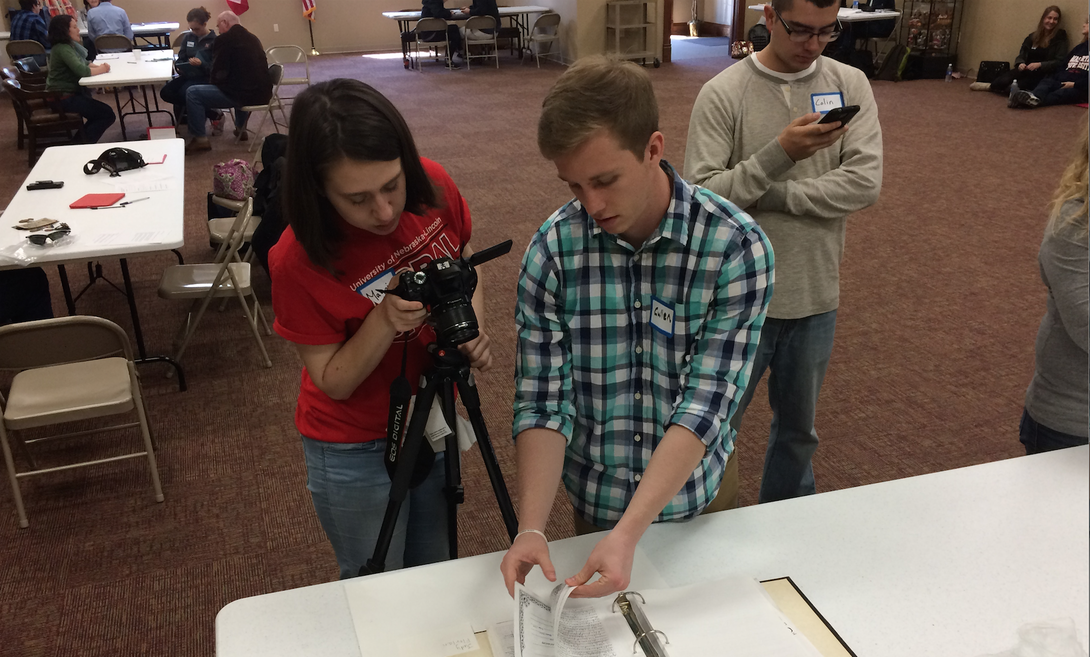
Jimmy Loeffelbein could not really believe what he was looking at. A woman he was interviewing turned it over and showed him vaccination stamps and daily health reports on a document, which appeared to be made of a type of cloth.
It was a sort of health inspection card from the long journey her ancestors had taken aboard a ship with other immigrants more than 150 years ago. The woman had 11 of the documents, one for each member of her family, including a 6-week-old baby, who had made a treacherous trip.
“That was so cool, to be looking at something like that,” Loeffelbein said.
Loeffelbein was one of the 20 University of Nebraska–Lincoln student volunteers who worked April 9 at the History Harvest in the Cultural Center in Wilber. The event attracted about 75 people; Jacob Friefeld, graduate student in history and project manager for the History Harvest, estimated that nearly 200 artifacts were photographed or scanned to be included in the university’s History Harvest digital archive.
Student volunteers ran the event, from signing in participants to conducting oral history interviews to photographing and scanning artifacts. The flow of people didn’t slow until about a half-hour before the event ended.
Now in its sixth year, the History Harvest seeks to collect familial and community artifacts and living histories from across the state and have in the past been hosted for different groups, including Germans from Russia and the Lincoln refugee community. This year’s harvest was focused on Nebraska’s vast Czech American heritage.
Many of the student volunteers didn’t realize how deep Czech roots ran in the Cornhusker State.
“I had no idea any of this was here, just right down the road,” Chelsey Pounds, a senior, said.
Usually, the History Harvest is a class in which students spend a semester learning about the digitization process as well as how to run a community event. This year, because of scheduling issues, a class wasn’t held, so Friefeld was reliant on student volunteers. The participating students said it was time well spent, even without class credit.
“I didn’t know what to expect, but it was awesome because the people really wanted to share their family history,” Jimmy Loeffelbein said.
Having this kind of opportunity to interact with people about their heritage and to see some of that heritage and document it is rare for undergraduates, Pounds said. She was excited to combine what she’s learned as an anthropology and history major on Saturday, when she photographed items to make 3D models for the archive, which is a first for History Harvest.
“When I went to the informational session about History Harvest, I thought what an opportunity for undergraduate students to learn how to do research like this,” Pounds said. “One of the things we learn about research in anthropology is community research and participatory research and this is the definition of it right here. We have a whole community here of thriving heritage that needs to be documented.”
Loeffelbein is excited to see the finished product from their work, which will be accessible to anyone on the History Harvest website.
“It’s cool that we are able to put these artifacts and documents online for anybody to see at any time, so people can be immersed in the Czech heritage,” he said. “The digitization is really beneficial to everyone.”







